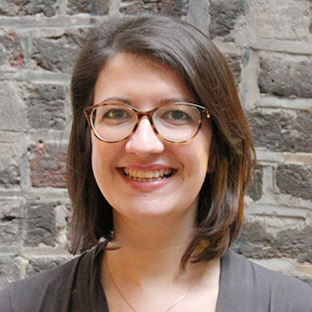This autumn will mark the official launch of our new Learning about Culture programme exploring the benefits that cultural learning offers to children and young people. If your cultural organisation works with schools in England, we want to hear from you!
How do you understand the difference your work makes to children’s learning? Your feedback will inform us as we design the programme.
Take the survey
Take the survey on Survey Monkey
Spread the word! #cultureinschools
As pressures on schools to achieve good results in English and maths rise, we are witnessing a decline in the amount of arts and cultural learning that takes place. More than ever, schools need strong evidence of what works in cultural learning and how it works, in order to inform their commissioning decisions. Cultural organisations increasingly need to use evidence both to understand and to demonstrate the benefits of cultural learning projects.
Therefore, we want to hear from you. Do you currently evaluate your projects? If so, how do you do it, and what helps you do that effectively? If not, what are the barriers? Over the next two years, the RSA will be working with the Arts Council Bridge organisations to encourage effective use of evidence in the cultural learning sector. Your responses will help us to understand what support is needed.
To ensure that your organisation has its say, and to be the first to hear about evaluation support that the RSA and Bridge organisations are offering, we'd like you to fill out this short survey* by Wednesday 13th September 2017 (deadline extended)
Please note that your organisation will not be identified in any publications relating to this survey and your responses remain anonymous. Your responses will inform future RSA work with the cultural learning sector and may be used as part of the evaluation for this programme.
Defining ‘cultural learning’
In line with a definition produced by the Cultural Learning Alliance, we define cultural learning as an active process of learning about culture and through culture. It references a wide range of artistic disciplines as well as material artefacts, and how they relate to understanding of oneself and social conventions that shape the world around us.
About Learning about Culture
This new RSA and Education Endowment Fund (EEF) programme will see 8,500 children in 200-300 disadvantaged schools participate in the largest evaluation of cultural learning activities ever undertaken. We aim to increase the amount of robust evidence of the difference that cultural learning makes to children’s attainment and personal development and to support the sector in turning evidence into effective practice.
The RSA and EEF are running this programme in partnership with Arts Council England, the Bridge Organisations, Paul Hamlyn Foundation, Bank of America Merrill Lynch and the Foyle Foundation.
*A number of the questions in this survey are based on previous research by NPC on impact evaluation in the voluntary sector. Read about their findings in their 2012 Making an Impact report.

Join the discussion
Comments
Please login to post a comment or reply
Don't have an account? Click here to register.
Sounds right! Our current experience is that the exam factory approach is functioning on both sides of the Atlantic - Colleagues teaching in Higher education are quite clear with us that the output from High School is at a considerably lower level than 10-15 years ago - the consequence is that real university learning kicks in much later, well into the second year according to colleagues at KIngs College - At High School level on the west coast of the US, we have been discussing an interesting take on artists in residence at High Schools - Happy to chat it through
Anything which breaks the mould of the exam factory production line in schools has my total support - but if our experience is typical (www.eduvate.biz) you'll have your work cut out - in the lower age ranges I predict it will be easier - but at the level of transition from secondary school to Higher Education or something else, the fixation with the body of knowledge which attains examination results for the school, shuts out most external initiatives. Very, very, good luck
Fully agree with Jonathan Bernard Brill.
Sorry my experience is becoming rather dated, but I would propose some calculated risk-taking at the level of transition to Higher Education and would be ready to discuss.how much and why.